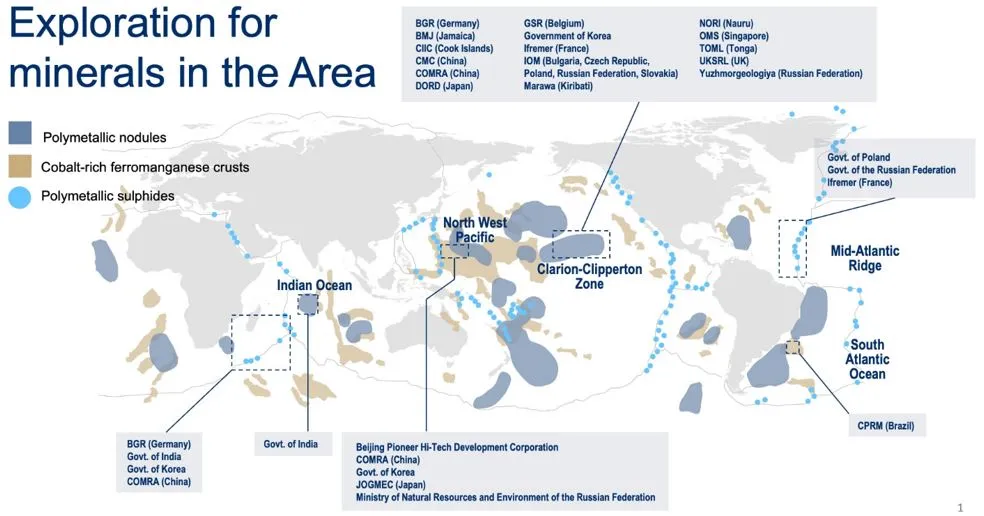

5th August 2024 (9 Topics)
Context
Amid concerns raised against mining metals and rare earths from ocean deep floor which can permanently damage fragile marine systems. The International Seabed Authority, or ISA, is working on a set of rules to regulate the extraction of raw materials from the ocean floor.
What is Deep-sea Mining?
- Deep-sea mining is the process of retrieving mineral deposits from the deep seabed – the ocean below 200m.
- Depleting terrestrial deposits and rising demand for metals mean deep-sea mining may begin soon, even though research suggests that it could destroy habitats and wipe out species.
- Deep-sea mining should be halted until the criteria specified by the IUCN are met, including the introduction of assessments, effective regulation, and mitigation strategies.
The present state of deep-sea mining:
- By 2025, the ISA wants to define a set of legally binding rules to manage deep-sea mining — without these rules, any planned mining operation will not be able to get started.
- Discussions have been ongoing for several years, but these latest talks have laid bare the extent to which the new rules remain divisive, especially when it comes to the issues of underwater monitoring and avoiding environmental damage.
- Several states, including Germany, Brazil, and the Pacific Island nation of Palau, have said they won’t agree on the new rules until their environmental impact has been fully investigated.
- China, together with Norway, Japan, and Nauru in the Central Pacific have made mining companies to start putting their plans into action.
Concerns related to Deep-sea Mining:
- Deep-sea mining focuses on extracting manganese nodules and other minerals from the ocean floor in international waters, known as the high seas, which cover over half of the world's oceans.
- These resources are considered the "common heritage of mankind," meaning they belong to everyone and are managed by the International Seabed Authority (ISA) under the United Nations Convention on the Law of the Sea.
- The UN's sea convention mandates that activities in the high seas, including profits from deep-sea mining, must be equitably shared among states. However, groupings like the Deep-Sea Conservation Coalition are skeptical about the feasibility of ensuring equitable sharing.
Impacts:
- Disturbance of the seafloor: The digging and gauging of the ocean floor by machines can alter or destroy deep-sea habitats. This leads to the loss of species, many of which are found nowhere else, and the fragmentation or loss of ecosystem structure and function.
- Sediment plumes: Deep-sea mining will stir up fine sediments on the seafloor, creating plumes of suspended particles. This is exacerbated by mining ships discharging wastewater at the surface. Scientists are concerned these particles may disperse for hundreds of kilometers, take a long time to resettle on the seafloor, and affect ecosystems and commercially important or vulnerable species.
Present Regulations:
IUCN Members adopted Resolution 122 to protect deep-ocean ecosystems and biodiversity through a moratorium on deep-sea mining unless and until several conditions are met. These include:
- The risks of mining are comprehensively understood and effective protection can be ensured;
- Rigorous and transparent impact assessments are conducted based on comprehensive baseline studies;
- The Precautionary Principle and the ‘Polluter Pays Principle’ are implemented;
- Policies incorporating circular economic principles to reuse and recycle minerals have been developed and implemented;
- The public are consulted throughout decision-making;
- The governance of deep-sea mining is transparent, accountable, inclusive, effective and environmentally responsible.



